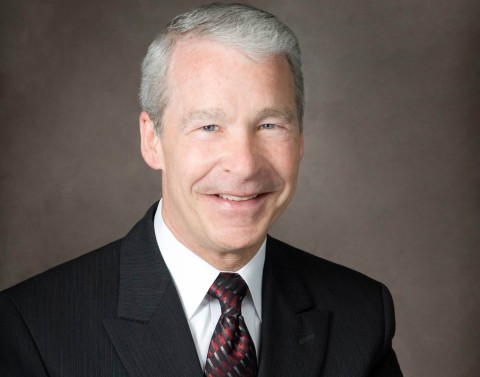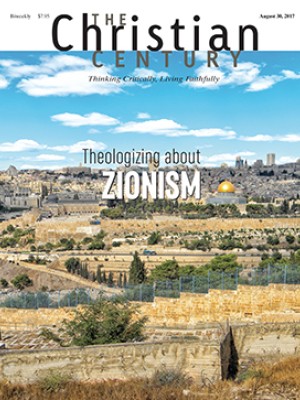Evangelical pastor who has promoted social justice steps down from leading megachurch
Joel Hunter broke with many of his peers in moving beyond hot-button topics.

Megachurch pastor Joel Hunter, who tried to lead evangelicals toward more moderate positions on issues such as climate change and immigration, is stepping down as leader of Northland, in Florida.
In a public letter he said that God was calling him to “a new season of ministry outside the four walls of the church.”
He has led Northland for more than 30 years, during which time it grew from 200 to 15,000 members. For the past two decades, Hunter urged his fellow evangelicals to make common cause with other faith communities on issues on which they could agree, such as human trafficking, homelessness, hunger, and prison reform.
“He is true to evangelical core values and at the same time rethinks responses based upon a changing world,” said Steven Engel, rabbi of the Congregation of Reform Judaism in Orlando.
Muhammad Musri, imam and president of the Islamic Society of Central Florida, agreed.
“I found Pastor Hunter to be a wonderful and a faithful ambassador for Christ,” Musri said. “I especially treasure working with him and traveling nationally and internationally to bring mutual understanding, respect and love between Christians and Muslims.”
Read our latest issue or browse back issues.
In 2012, Hunter helped organize a faith response to the shooting death of Trayvon Martin, an unarmed black teenager, in nearby Sanford, Florida, and attended the trial of the man accused of killing him.
In his biography, posted on Northland’s website, he outlined his approach to activism: “I am not partisan, nor am I politically oriented. But as God has ordained three institutions—the family, the church, and the government—I work as a pastor in all three of these arenas to promote love and caring and service, especially to those who need it most.”
Hunter attempted to steer white evangelicals away from being taken for granted as a wholly owned subsidiary of the Republican Party. In 2006 Hunter stepped down as president-elect of the Christian Coalition, just months after accepting the post. He explained that he was unable to persuade the conservative organization to expand its policy agenda to include fighting poverty and global warming.
He formally left the Republican Party in 2010, registering as an independent. He served as a spiritual adviser to President Obama, praying at the Democratic National Convention.
In a 2013 interview he said that ecumenical activism may have caused as many as 1,500 members, or 10 percent of Northland’s membership, to leave the church. He likened membership departures to separating the wheat from the chaff.
“There is no such thing as safe leadership,” he said.
Most recently, Hunter has been passionate in calling on evangelicals to reach out to the LGBTQ community, particularly in the wake of the Pulse nightclub shooting, which took the life of 49 patrons as well as the shooter.
In the pre-dawn hours of June 12, 2016, a police officer on the scene of the shooting, a Northland member, called Hunter at home, and the minister rushed to the site to minister to those in trauma. His experience was compared by some to St. Paul being struck by lightning on the road to Damascus.
Two days after the shooting, more than 2,500 mostly white Protestant evangelicals and Pentecostals gathered at First Baptist of Orlando, another megachurch on the city’s suburban edge. On the program, Hunter had been scheduled to deliver “A Prayer for the LGBTQ Community.”
Instead, he told people in the cavernous sanctuary that since he had always been part of a powerful majority community—straight white Christian males—and had never been “part of a vulnerable or a persecuted community,” he was ill-equipped to speak on the subject. He stepped aside and gave the microphone to Victoria Kirby York, national campaigns director with the National LGBTQ Task Force.
“We still have far too many people who don’t believe that God’s love extends to others,” said York, making no direct reference to evangelicals’ previous opposition on issues such as gay marriage, and their belief that homosexuality is a sin.
In the days and weeks following, Northland provided material support to the Pulse victims’ families, survivors and friends. And Hunter continued to speak out on the issue of acceptance. —Religion News Service
A version of this article, which was edited on August 11, appears in the August 30 print edition under the title “People: Joel Hunter.”





